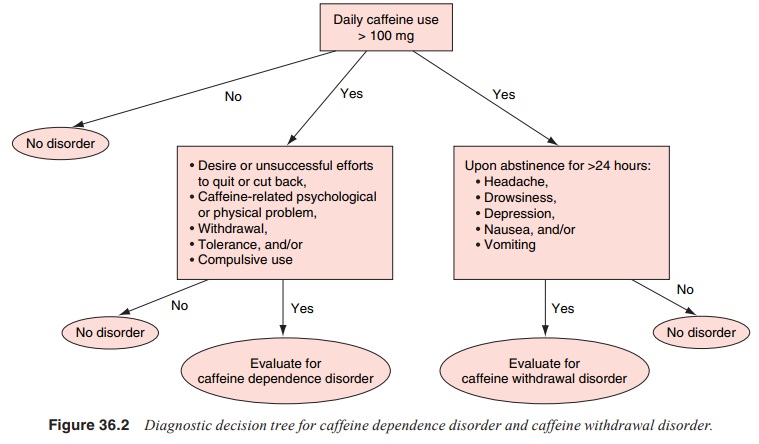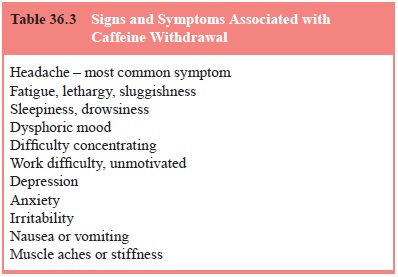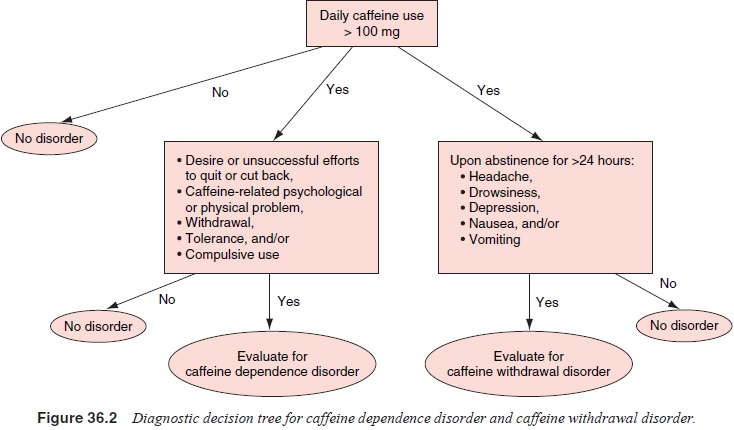Chapter: Essentials of Psychiatry: Substance Abuse: Caffeine Use Disorders
Caffeine Withdrawal

Caffeine Withdrawal
Definition
Table 36.3 lists the signs and symptoms of
withdrawal. As is the case with all DSM diagnoses, this disorder implies
clinically sig-nificant distress or impairment and a general medical condition
must be ruled out.

Assessment
The key steps in establishing a diagnosis of
caffeine withdrawal are to determine the history of the person’s caffeine
consump-tion from all dietary sources, and then establish whether there has
been a significant decrease in caffeine intake. The diagnostic decision tree
for caffeine dependence disorder and caffeine with-drawal disorder is shown in
Figure 36.2. Caffeine withdrawal

is probably more common than is generally
recognized, and it seems there is a tendency for people to attribute the
symptoms of caffeine withdrawal to other etiologies besides caffeine (e.g.,
having the flu, or a bad day). Caffeine withdrawal may be partic-ularly common
in medical settings where patients are required to abstain from food and
fluids, such as before surgical procedures and certain diagnostic tests. In
addition, caffeine withdrawal may occur in settings where the use of
caffeine-containing products is restricted or banned, such as inpatient
psychiatric wards.
Differential Diagnosis
Caffeine withdrawal should be considered when
evaluating indi-viduals presenting with headaches, fatigue, sleepiness, mood dis-turbances
or impaired concentration. The differential diagnosis of caffeine withdrawal
includes: viral illnesses; sinus conditions; other types of headaches such as
migraine, tension, postanes-thetic; other drug withdrawal states such as
amphetamine or co-caine withdrawal; and idiopathic drug reactions.
Course
Caffeine withdrawal generally begins within 12 to
24 hours after discontinuing caffeine use. The peak of caffeine withdrawal
gen-erally occurs within 24 to 48 hours, and the duration of caffeine
withdrawal is generally 2 days to about 1 week.
Treatment
There have been few studies attempting to address
the treatment of caffeine withdrawal, although it has frequently been observed
that the symptoms of caffeine withdrawal can be alleviated with the consumption
of caffeine and this approach is probably best. If the medical recommendation
is made to eliminate or sub-stantially reduce caffeine consumption, then it may
be useful to recommend a tapering dose schedule rather than abrupt
discon-tinuation. Caffeine tapering (or “fading”) is described in more detail
in the section on “caffeine dependence”.
Related Topics